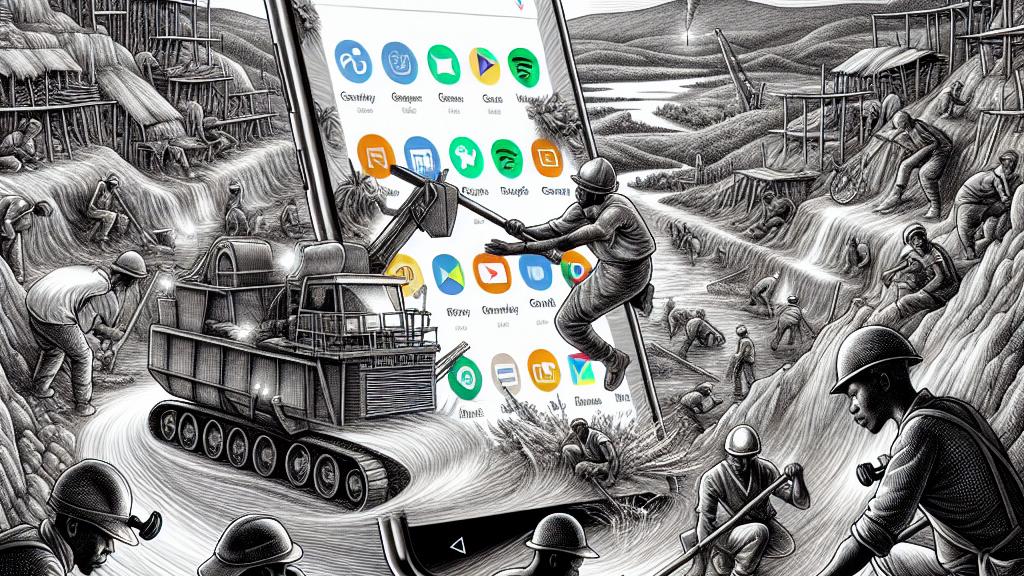Understanding the Connection Between Phones and Conflict in DR Congo
Overview
- Coltan, a crucial mineral, powers your smartphone but fuels conflict in DR Congo.
- M23 rebels control coltan-rich areas, perpetuating violence and exploitation.
- Consumers need to recognize the ethical implications of conflict minerals.

The Hidden Cost of Your Smartphone
Imagine picking up your smartphone and realizing that it contains a fragment of conflict—a connection to the ongoing turmoil in the Democratic Republic of Congo (DR Congo). This is due to coltan, a rare and essential mineral that powers various electronic devices. As you scroll through your apps, consider the journey of the tantalum within your phone, carefully extracted from places like Rubaya. Tragically, this region is under the thumb of the M23 rebel group, where miners work in dangerous conditions, risking their lives daily. While you enjoy seamless connectivity, these laborers face the harsh reality of survival, emphasizing a vital yet often overlooked link between technology and conflict.
M23: From Protectors to Profit-driven Rebels
Initially, the M23 started as a force meant to protect the rights of the Tutsi minority, but things took a darker turn as they transitioned into a powerful, profit-driven organization. With control over lucrative coltan mines, they've established a revenue stream that astoundingly generates approximately $800,000 a month. Just think about that! After taking over Rubaya, they doubled the wages of miners to ensure compliance, while simultaneously imposing steep taxes on traders. This calculated move showcases a troubling dynamic: as local miners strive for a pinch of income, they inadvertently bolster a war machine fueled by their labor. This situation illustrates how noble intentions can devolve into a cycle of exploitation, ultimately leaving the impoverished communities trapped in a situation they cannot escape.
The Global Ripple Effect of Conflict Minerals
The implications of coltan mining in DR Congo extend well beyond its borders, touching the lives of consumers around the world. In a time when technological dependence is at an all-time high, the demand for coltan has increased, raising critical ethical questions. While laws like the US Dodd-Frank Act aim to combat the trade of conflict minerals, the challenge lies in their enforcement. For example, despite initiatives like the Innovative Tin Supply Chain Initiative, reports reveal troubling patterns of corruption that allow some traders to falsify documents, obscuring the true origins of their minerals. This leads us to an uncomfortable but necessary reflection: when we purchase the latest gadgets, are we inadvertently supporting a system fueled by violence? By acknowledging this interconnectedness, we can become more conscientious consumers, advocating for transparency and ethical sourcing in the market.

Loading...